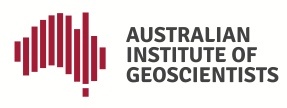Careers in Geoscience: Mining
Mine Geologists are employed by organisations working in the minerals sector. They are part of a multi-disciplinary team responsible for defining the location, quantity and quality of the mineral commodity being extracted; contributing to the efficient planning, extraction and processing of that commodity; then reconciling the actual production versus what was predicted from the geological model.. Their work is mostly site based and consists of near-mine exploration, resource definition drilling, resource estimation, production control, reconciliation and reporting. Their tasks may include open pit and underground geological mapping and sampling; drill planning, execution, logging and sampling; geophysical data collection; data integration and analysis, computer-assisted geological interpretation, modelling and estimation of Mineral Resources; and continuous liaison with other disciplines to ensure the mine operates efficiently.
Activities
Includes mining and extraction of mineral commodities such as precious metals (e.g. gold and silver), base and ferrous metals (e.g. copper, lead, zinc, nickel, iron ore), energy minerals (e.g. coal, oil shale), bulk minerals (e.g. bauxite and phosphate) and industrial minerals (e.g. limestone, graphite, aggregate).
Typical duties include:
- Project planning and management
- Planning and executing near-mine exploration programs to discover and define new resources using geology, geochemistry, geophysics and drilling
- Planning and executing resource-infill drilling programs to increase the confidence in the resources to facilitate detailed mine planning and scheduling
- Geological logging, sampling, analysis and interpretation of all drilling data
- 3D geological interpretation and modelling of lithology, alteration, structure, weathering and mineralisation
- Mineral Resource estimation and reporting
- Production control, such as grade control drilling, mapping, sampling, mining block layouts, supervision of mining activities
- Preparing routine daily/weekly/monthly and annual reports
- Liaising with mine production staff, other mine-based technical and non-technical staff, and external service providers.
Skills Required
The role can carry a moderate-high level of responsibility because the Mine Geologist provides essential input to Mine Engineers and Metallurgists as part of a team managing the design and execution of a continuous mining operation. Therefore, Mine Geologists need to provide timely advice and information as required to ensure there are no delays in the mining process. Consequently, sound professional and technical skills, time management and project management skills are an important feature of the job.
Typical skills required are:
- Knowledge of a range of sciences and their applications
- Ability to work within a multi-disciplinary team of surveyors, engineers, metallurgists, environmental scientists and various non-technical professions
- Good time management and organisational skills
- Computer literacy and ability to analyse numerical and graphical data
- Ability to think and visualise in 3D
- Good written and verbal communication skills
- Geological mapping, rock recognition, structural geology, knowledge of geochemistry and geophysics, GIS and spatial skills.

